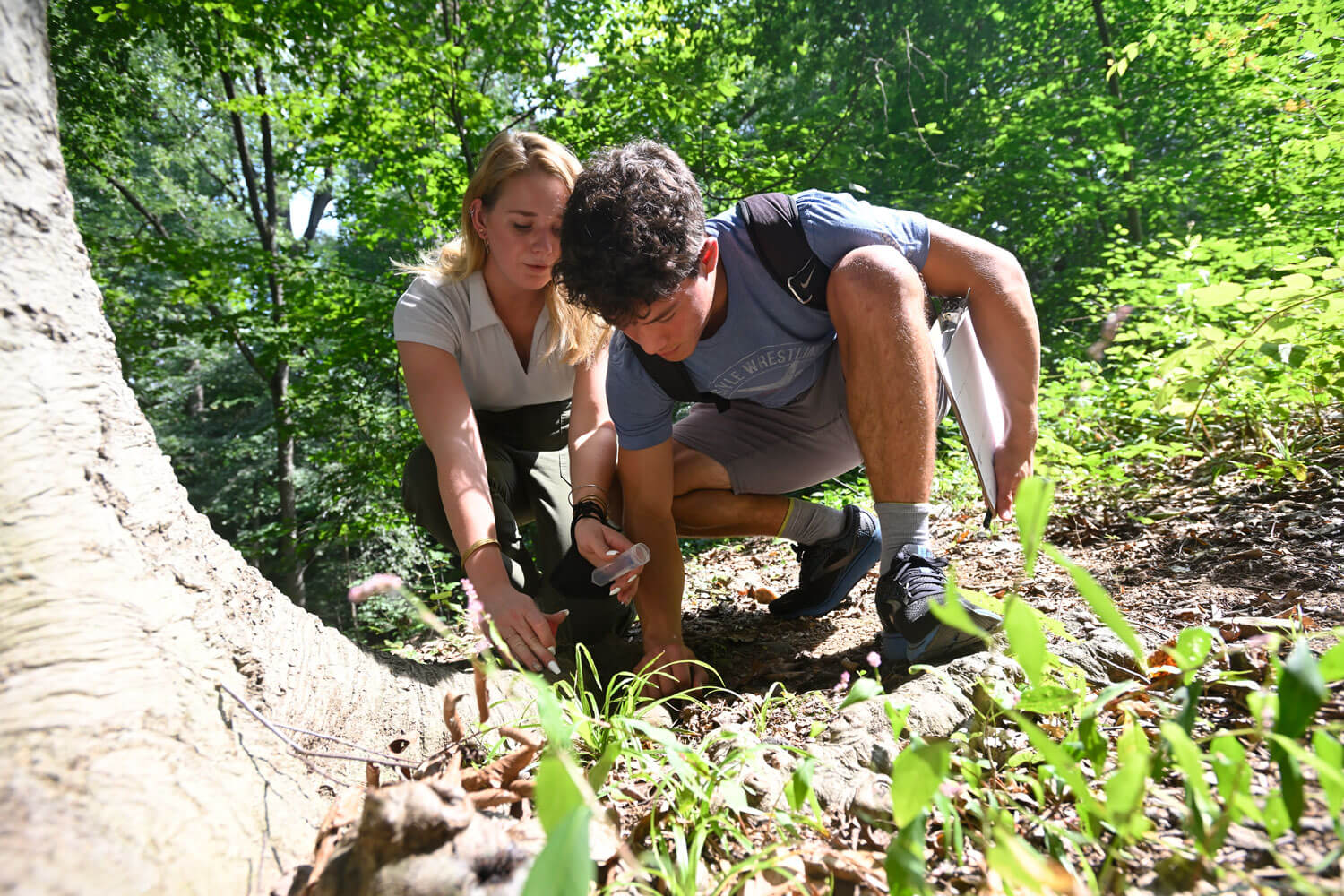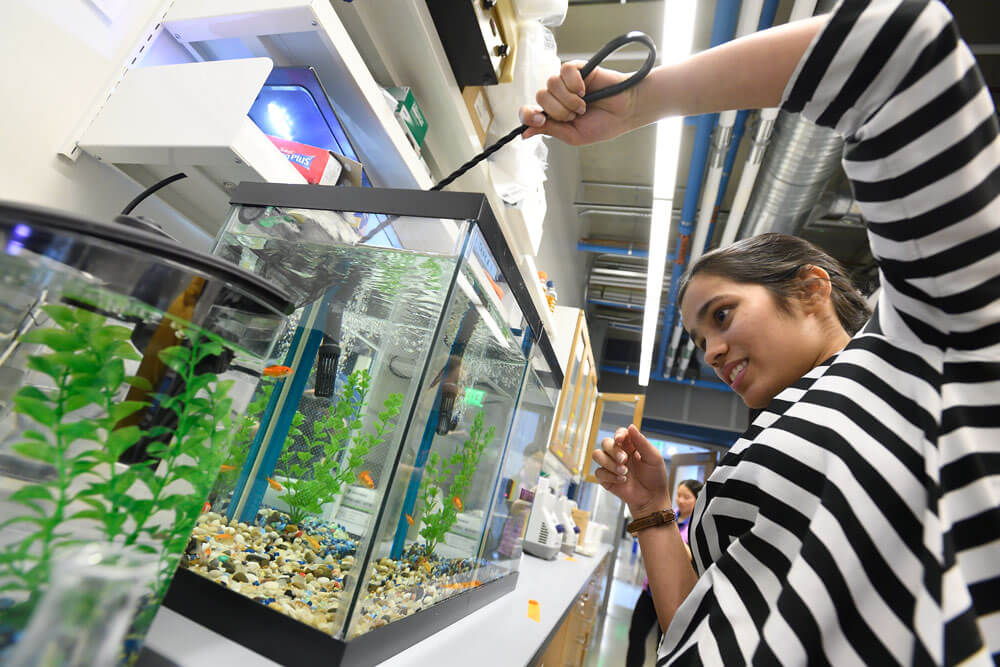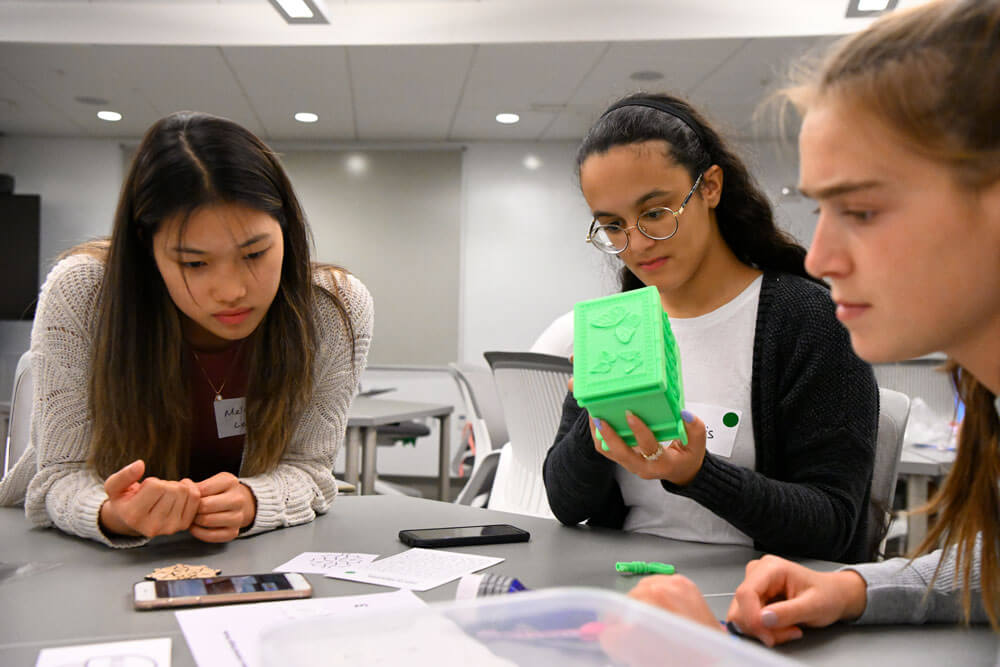Environmental Engineering

We use fundamental science to protect the health of the environment and its inhabitants.
Environmental engineers play pivotal roles in bridging the gap between understanding complex scientific concepts and translating them into public policies that affect the environment. Our data-driven approaches to research, cross-disciplinary problem solving, and access to resources and expertise from different departments help prepare you for a career in industry, government, and graduate education.
CLASSES YOU MIGHT TAKE

Engineering Microeconomics
This course introduces the principles of microeconomics and engineering economics and how they apply to environmental engineering, public policy analysis, and engineering decision making.

Environmental Health and Engineering Systems Design
You’ll learn techniques from systems analysis applied to environmental engineering design and management problems: reservoir management, power plant siting, nuclear waste management, air pollution control, and transportation planning.

Noise and Other Physical Agents in the Environment
This course addresses noise-related topics, such as physics of noise propagation and control, noise measurement, hearing physiology, and noise-induced hearing loss.
Faculty Spotlight

Join the Club
Hopkins students are eager to pursue their interests outside the classroom. With 450+ student-led organizations, here are just a few you could join:
- American Mock World Health Organization
- Epidemic Proportions
- Engineers Without Borders (EWB)
- GreenHacks
- Hopkins Student Wind Energy Team
- Environmental Health and Engineering Student Organization
- National Society of Black Engineers (NSBE)
- Out in Science, Technology, Engineering & Mathematics (oSTEM)
- SciComm
- Society of Hispanic Professional Engineers (SHPE)
- Society of Women Engineers (SWE)
- Tau Beta Pi (Engineering Honor Society) (TBP)
- Theta Tau (Professional Engineering Fraternity)
- The Triple Helix at Johns Hopkins University
- Hop Outside
- Johns Hopkins Outdoors Club